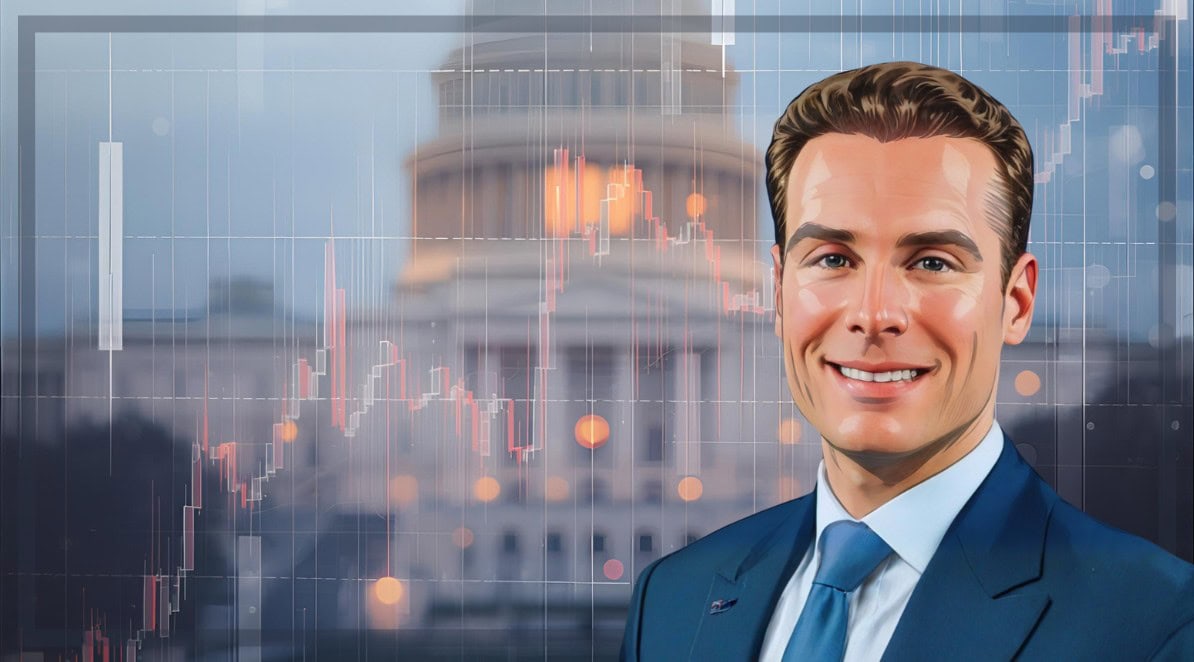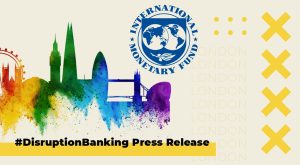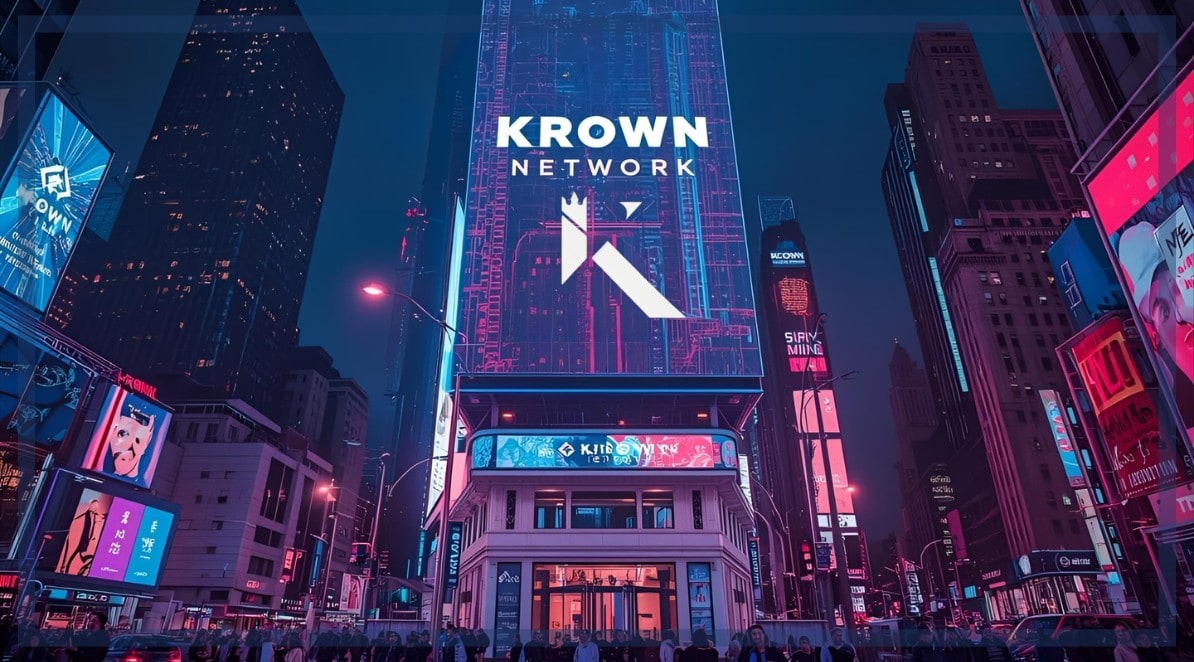In late 2021 DisruptionBanking supported the International Swaps and Derivatives Association (ISDA) North America Conference. One of the keynote speakers during that event was J. Christopher Giancarlo, the former Chairman of the Commodity Futures Trade Commission (CFTC). As the U.S. starts to explore innovative digital asset opportunities, it is important that influential people like Christopher continue to be visible, this time at the North American Blockchain Summit right here in Dallas, Texas.
Our editorial team has been supporting the North American Blockchain Summit for three years, but not only. Our remit covers the Singapore Fintech Festival, the Point Zero Forum, the International Organization of Securities Commissions (IOSCO) events, and the International Swaps and Derivatives Association’s (ISDA) conferences, and AGM. Christopher has been one of the speakers that has stood out over the years. His pedigree and policy-related experience are second to none.
This year he joined the speaker line-up at NABS25 where he spoke with Eleanor Terrett (Crypto in America Podcast) about the opportunities and challenges facing the crypto industry today.
#CryptoDad opens Day Two of #NABS25 by sharing his experience during the global financial crisis and the early days of crypto@NABSummit @TXblockchain_ @digitalstartup5 pic.twitter.com/DfehvCBzWf
— #DisruptionBanking (@DisruptionBank) October 10, 2025
Sound Regulation is Good, Over Regulation is Not
It is timely that Christopher joined the Summit when he did. Just yesterday, Senate Democrats proposed a treasury-controlled restricted list for DeFi protocols. Christopher called this proposal undemocratic. The Treasury Department, according to the proposal, would impose KYC rules that would strip protections from crypto developers, potentially punishing U.S. nationals who use restricted protocols or generate recurring revenues from them.
This restrictive approach to how DeFi would be regulated is something that shouldn’t be a surprise, Christopher explained to delegates. In his upcoming book, he shares his insights about FTX and how the collapse of the crypto exchange potentially affected Democrat policy.
Sam Bankman-Fried of FTX spoke at the ISDA AGM a few months after Christopher gave a keynote at the ISDA Conference. At the time, Sam was the sixth-largest donor to the Democrats in the 2021-2022 election cycle. He donated $39.8 million. Today we know that he didn’t have this money, and so do the Democrats.
Could this be a reason for embarrassment among Democrats today? Could it be influencing the regulation that Democrats are looking to impose? Christopher suggests this may be the case.
“I can’t think of anything less progressive than trying to put freedom of speech under the control of the U.S. Treasury Department,” Christopher explained. He doesn’t believe that the proposal is consistent with the Democrats’ own philosophy. What it has done, inadvertently, is remind the crypto community of why they voted for the Republicans. The Democrats need to learn a lesson, and this lesson is simple.
“The next generation wants a financial system that has greater financial access. That has greater direct utility, where people can feel more in control of their financial resources and less dependent on intermediaries and the bank-centric financial system we have today,” Christopher shared, and delegates clapped in response.
Regulators in the United States Today
Christopher was full of praise for acting CFTC Chairman Caroline D. Pham. He believes that she has done a fabulous job and deserves an enormous amount of gratitude from the industry for holding the fort whilst the White House looks to appoint further commissioners, as well as find a permanent Chairman for the organization.
He explained how it was important for the CFTC and SEC leaders to work well together as was the case when Christopher was Chairman of the CFTC from 2014 to 2019 serving two Presidents during this time. At the time Jay Clayton was the Chairman of the SEC.
When Gary Gensler was at the helm of the SEC, the relationship between him and Rostin Behnam, the Chairman of the CFTC, was anything but rosy. Christopher believes that this lack of synergy is influenced in part by the “tone from the top.”
Trump’s Pro-Crypto Stance
Christopher shared with delegates how he was at the White House crypto summit in March alongside industry veterans like Brad Garlinghouse of Ripple, Brian Armstrong of Coinbase, Sergey Nazarov of Chainlink Labs, and others.
He explained how the one thing he heard over and over again was how “we want to get back to a government that says, ‘don’t ask permission, ask forgiveness.’”
“They’re looking for the industry to return to a more traditional American ethos of the internet, which is to build things and break things, and don’t ask permission, ask forgiveness,” Christopher added. “There’s one major caveat to that, and that is don’t cheat people.”
The current administration wants to encourage you to build what has not been built before. It doesn’t want to get into the way of innovation. As long as people are not being ripped off, innovation can thrive.
While Christopher is keen to engage with the public sector, he prefers his work in the private sector. He believes that the current division of responsibilities between the CFTC and the SEC is necessary. That there shouldn’t be one overall regulator for the industry. He hopes that we can now start to see the benefits of spot crypto traded on an SEC-regulated exchange like Nasdaq, as well as a CFTC-regulated exchange like CME. That under Paul Atkins’ leadership at the SEC, we will see a more favourable and safe one-stop shop where crypto can be traded easily, supported by an independent agency structure. He believes this is good for investors, but more importantly, it is good for the U.S. economy.
Author: Andy Samu
See Also:
From the CFTC to ‘CryptoDad’ | Disruption Banking
Trump’s Big Bet on Crypto | Disruption Banking
How Paul Atkins as SEC Chairman Might Transform Crypto’s Legal Landscape | Disruption Banking














